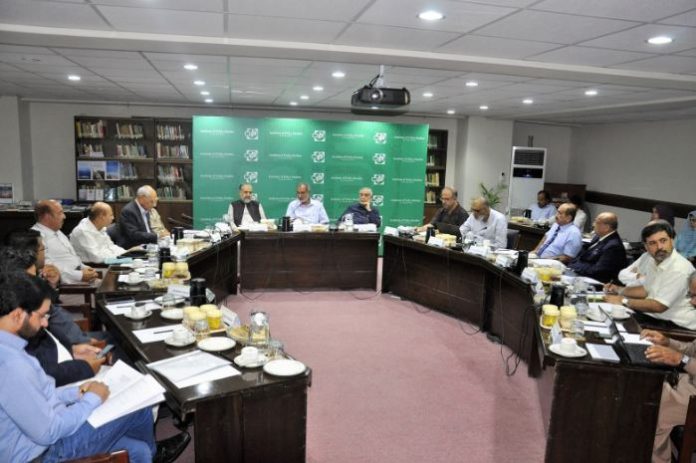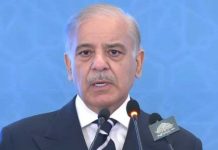Annual Meeting of IPS’ National Academic Council
Islamabad, Sept 18 /DNA/ – Pakistan faces deeply ingrained governance challenges that require moving beyond suggestions to concrete and sustained actions. The knowing-doing gap necessitates a proactive stance where solutions are implemented in the form of tangible actions to address the challenges faced by the nation.
The country urgently needs to address major concerns such as poor governance, internal strife, corruption, a flawed education system, moral turpitude, environmental challenges, and healthcare difficulties. This requires consistency in government policies, addressing disparities, utilizing youth as a resource, building narrative and national emotions, and pushing constructive change through research.
This was observed by prominent intellectuals, academics, technocrats, and religious scholars at the annual meeting of the National Academic Council of the Institute of Policy Studies (IPS). The yearly gathering aims to garner intellectual input from a cross-section of veteran practitioners for IPS’ research activities and realistic ideas regarding national issues.
Chaired by IPS’ Chairman Khalid Rahman, the meeting was addressed by Prof. Dr Anis Ahmed, Vice Chancellor, Riphah International University; Vice Admiral (r) Iftikhar Ahmed Rao, special assistant to the PM on maritime affairs, Prof. Dr. Qibla Ayaz, chairman, Islamic Ideology Council of Pakistan; Dr. Syed Mohammad Anwer, Justice, Federal Shariat Court, Razia Sultana, member, Khyber Pakhtunkhwa Public Service Commission; Ambassador (r) Syed Abrar Hussain, vice chairman IPS; Dr. Anwar-ul-Hasan Gilani, Chairman, Pakistan Council for Science and Technology; Syed Abu Ahmad Akif, former federal cabinet secretary; Mohammad Bashir Jan Mohammad, chairman, Westbury Group of Companies, Karachi; Mirza Hamid Hasan, former federal secretary, water and power; Dr. Syed Tahir Hijazi, former vice-chancellor, Muslim Youth University; Saima Hamid, vice chancellor, Fatima Jinnah University, Rawalpindi; Syed Irfan Hyder, vice chancellor, Ziauddin University, Karachi.; Dr. Syed Junaid Zaidi, former rector COMSATS; Dr. Masood Mehmood Khan, Curtin University, Australia; Dr. Shahida Wizarat, dean, College of Economics and Social Development, IoBM, Karachi; Prof Jaleel Aali, former HoD Urdu, F.G. Sir Syed College; Dr. Naveed Butt, senior physician, Federal Government Services Hospital; Dr. Noreen Sahar, associate professor and chairperson, Department of Anthropology, IIUI; whereas Prof. Dr. Fakhr-ul-Islam, director research and academic outreach at IPS moderated the session.
While emphasizing the importance of intellectual and policy-level unpacking of important national challenges, the speakers addressed the critical issue of poor governance as the source of national concerns. They said that overemphasizing immediate fixes at the expense of addressing deeply embedded governance challenges through long-term solutions is problematic. As problems cannot be solved in isolation, it necessitates systematic and sustained actions, with immediate as well as short-term and long-term solutions, to reform governance.
The speakers called for comprehensive education reforms to build a solid foundation for the nation’s future. They said mandatory IT, technological, and vocational education, focusing on character development and moral values, is the practical solution. This is important as the quality of graduates directly impacts the nation’s resilience, ability to address challenges, and leadership quality. Additionally, there should be a single national curriculum to counter the increasing polarization and educational disparities because of the different parallel education systems.
Lamenting the current education system’s negative impact on youth’s research and innovation potential, the speakers emphasized that young people must be empowered as the drivers of potential change. For that, youth-centric policies and change in the curriculum through relevance audits and accreditations are essential. Moreover, the development of research and innovation potential in colleges and universities must be maintained through successive governments and consistent policies.
The speakers also highlighted the significance of establishing responsiveness and readiness to counter environmental challenges timely. In addition, reforms in healthcare, agriculture, climate, and the economic system must be developed for public welfare and national development.
Highlighting the international dimensions of Pakistan’s problems, the speakers underscored that the country must counter external forces ready to exploit it by pushing national emotions and solution-oriented actions in the contemporary battle of narratives. They suggested that Pakistan must first deal with increasing internal polarization, violation of laws and the Constitution, internal disparities, corruption, and prioritization of personal interests over national ones at policy and leadership levels.












